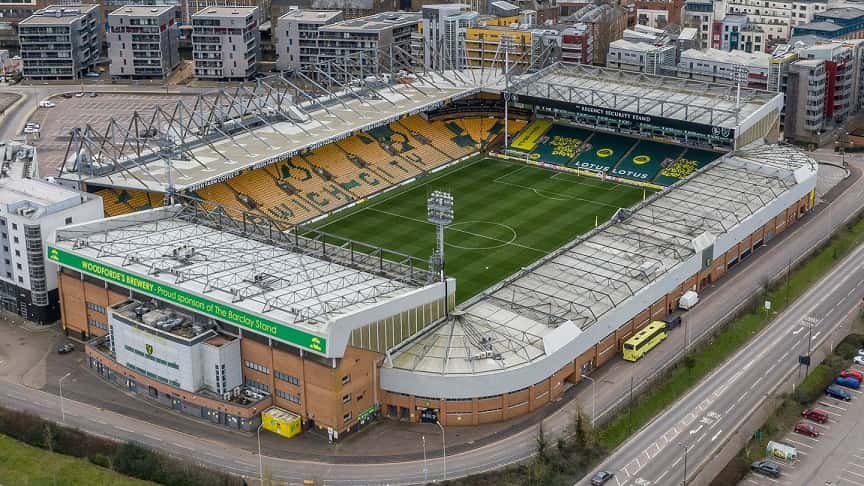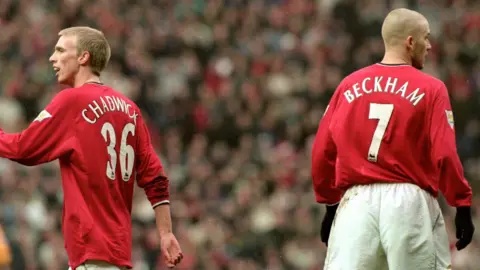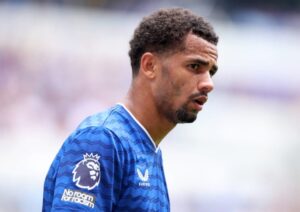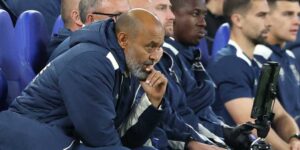
Norwich City: Head coach latest with progress being made
Norwich City are set to ramp up their search for a new head coach as the hunt for Johannes Hoff Thorup’s successor edges closer to completion.
‘I was a Premier League winner but I didn’t want to leave the house’
Luke Chadwick hit the heights when he won the Premier League with Manchester United, but off the pitch he was plagued by anxiety and depression.
As a young player, he suffered abuse and bullying over his appearance that sometimes left him reluctant to leave the house.
“As a 19-, 20-year-old it should have been the best time of my life but for a period of time… I didn’t want to go to the shops, I didn’t want to go out with my friends… I would just want to stay at home because I was so scared that people would talk about the way that I looked,” he says.
Now 44, the Cambridge-born player has written an autobiography entitled Not Just a Pretty Face that details the highs and lows of his career.
Chadwick won the Premier League with United in 2001, playing alongside the likes of David Beckham, Gary Neville and Roy Keane.
His career had started when he was scouted by United, aged 14.
After an impressive trial, manager Sir Alex Ferguson made a phone call to his mother, requesting he sign.
Chadwick, who grew up in Meldreth, Cambridgeshire, was just 18 when he made his senior debut during the 1999-2000 season, after two years in the academy.
Chadwick admits he went into professional football “naively”, assuming it was how he played that was important, yet soon found himself ridiculed and abused about his looks.
He was the butt of jokes on BBC TV show They Think It’s All Over, for which host Nick Hancock – and panellist Gary Lineker – have since apologised.
 Getty Images
Getty ImagesIt was not a problem on the pitch itself. “Football was always the place I felt free; the place where I didn’t think about anything else,” he says.
“I think it was away from the game that it affected me more, and it was something that I became obsessed by internally, and I didn’t like leaving the house because, in my mind, I would just be abused or teased about the way I looked when, in reality, that wouldn’t be the case.”
- A list of organisations in the UK offering support and information with some of the issues in this story is available at BBC Action Line
As a young player, Chadwick says, he did not have the “emotional intelligence” to deal with it.
“My thoughts were to be vulnerable was to be weak – ‘I can’t show any sign of weakness’ – when, in reality, our vulnerability is our biggest strength,” he says.
“I wasn’t able to speak about it to anyone – not even my family, my friends – it was something that I kept so deep inside… and probably felt helpless, in a way, because I just didn’t know how to deal with it… and I just wanted it to stop, really.
“It wasn’t until I came away from Manchester United, and the spotlight’s not on you as much… that I was able to rebuild my confidence and live a really happy life.”
He says he was fortunate to have a loving family and girlfriend – now his wife – to help him do that.







